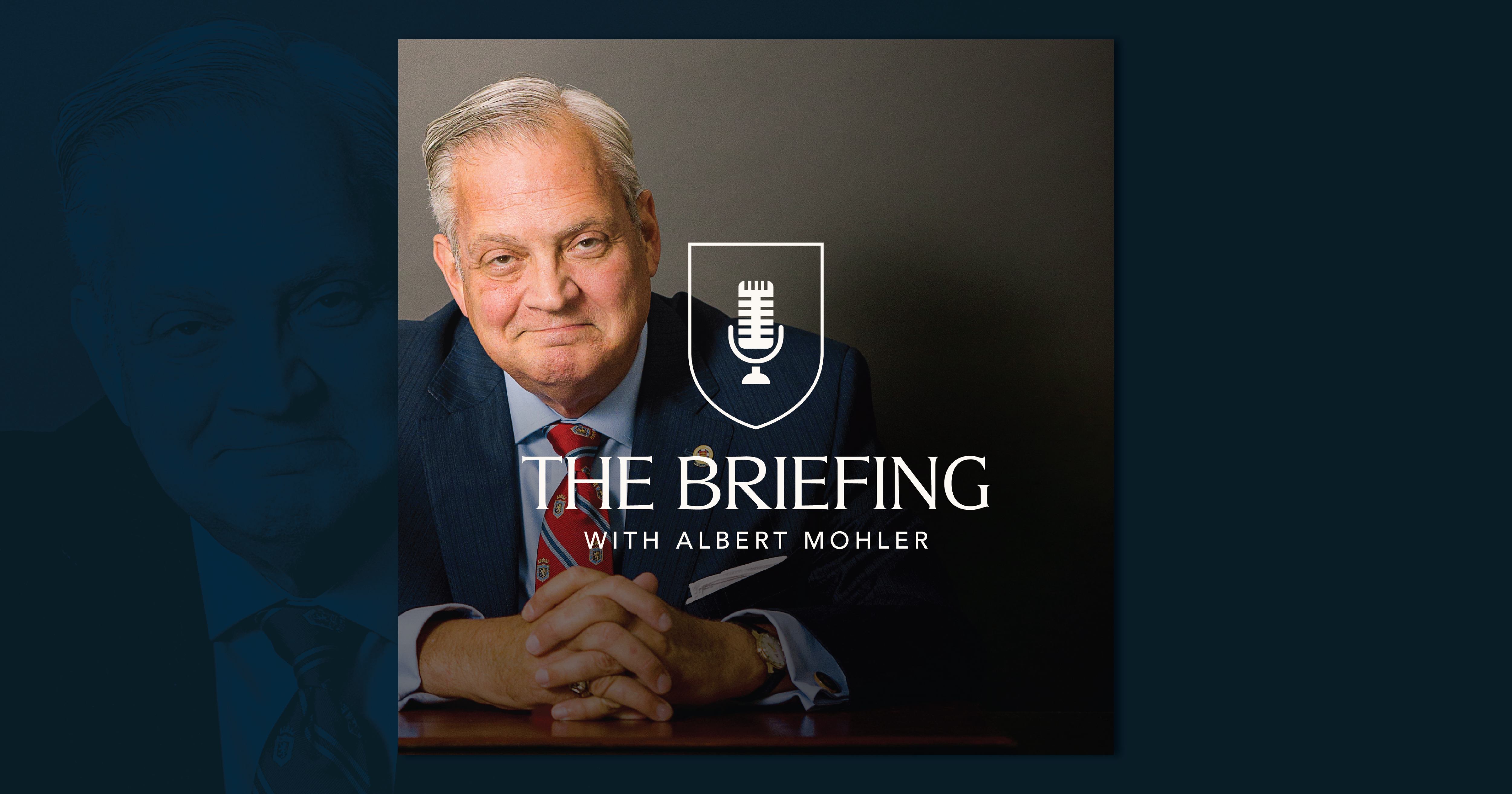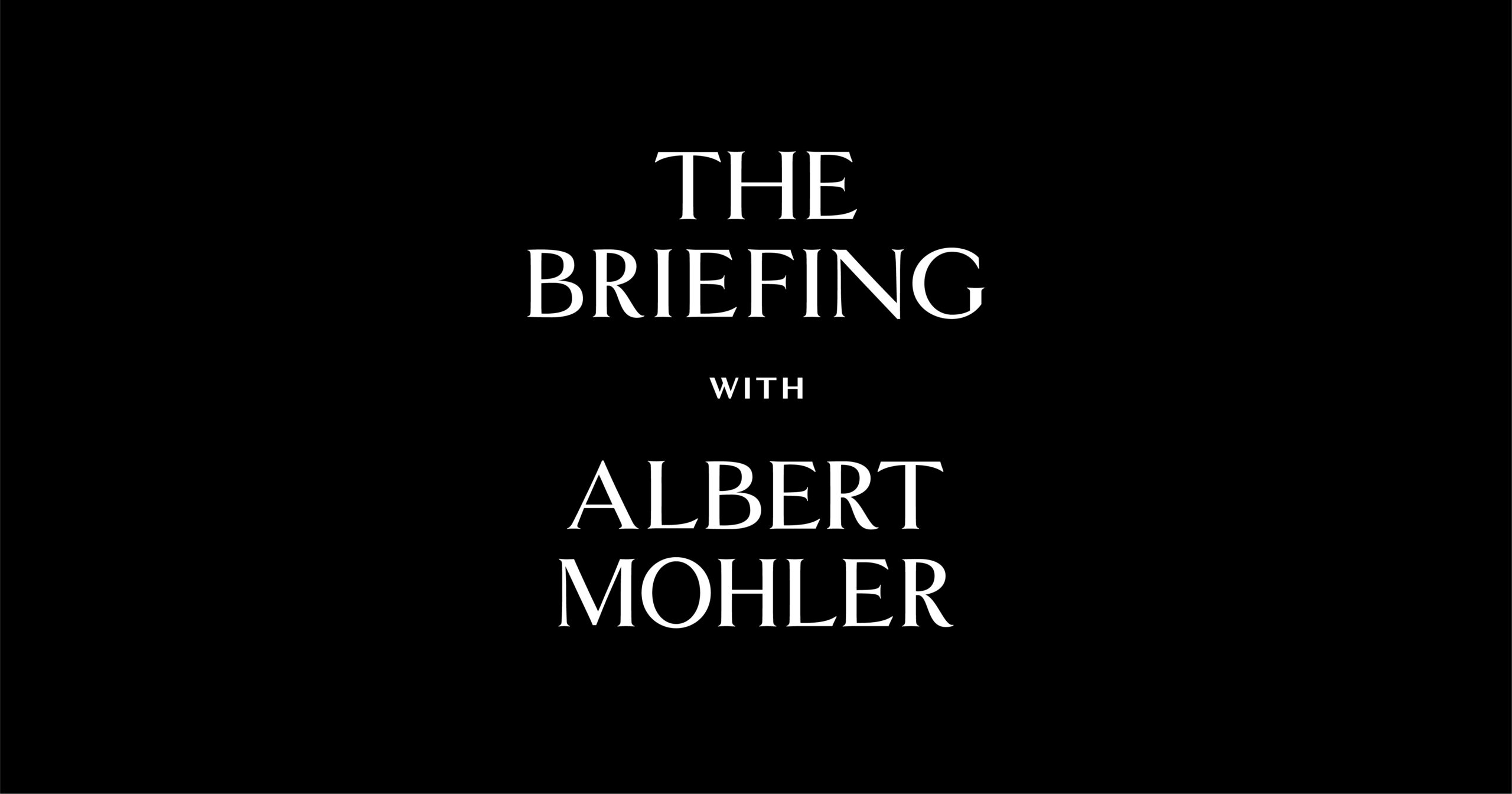
Now, at that point, Christians need to think really, really carefully, and we also need to speak very honestly with one another because here is where you see the logic of the trimester pattern of the Roe v. Wade decision that is also reflected in much historical documentation about what human beings knew about the development of the baby in the womb.
And the fact is that until the advent of modern medicine, human beings did not know a great deal, of course that we know now, but they did know that the baby develops from an unformed form into a very formed form recognized as a human baby over the course of the roughly 40 weeks of gestation or pregnancy. And so there is a developmental process, and by the way, even early human beings could recognize this in other species, for instance, in animals. At the same time, it was recognized as true in human reproduction as well, and that does raise a question then. Do we have the right to say when a lamb becomes a lamb, do we have a right to say when a whale becomes a whale, or do we have a right to say when a baby becomes a baby? Well, once we enter into that logic, here’s what we need to understand.
Once we enter into that logic, we basically abandoned a biblical worldview that gives us no right to make a distinction, but rather has to understand that the gift of life from the beginning means that there is a human person there in that fertilized egg that now becomes a living organism, yes, within the mother, but at the same time a separate person. Now, what biblical warrant do we have for that? That’s a good question. Why would we say there’s biblical authority at stake here? Well, just very quickly, let’s consider one biblical text, but I believe the most crucial biblical text in this regard, and that is the 139th Psalm. Well into the Psalm, even as David has said, “Even the darkness is not dark to you”, speaking to God, “The night is as bright as day for darkness is as light with you.”
Then the psalmist writes, “For you formed my inward parts. You knitted me together in my mother’s womb. I praise you for I am fearfully and wonderfully made. Wonderful are your works. My soul knows it very well.” And then these words beginning in verse 15 of Psalm 139, “My frame was not hidden from you when I was being made in secret, intricately woven in the depths of the earth. Your eyes saw my unformed substance. In your book were written, every one of them, the days that were formed for me when is yet there were none of them.” Now, if we only had that text, just this one psalm, the 139th Psalm, here’s what Christians would know, and it’s consistent with everything else this revealed in scripture. Here’s what we would know. We have absolutely no right whatsoever to say that human personhood begins at any point other than when God says, let there be life. Here you have the psalmist saying that even when he was unformed.
Now unformed means exactly what the psalmist implies here. He was unformed. You could look at that early development even of the psalmist in the womb, and guess what? It would not have looked recognizably human not to humans, but it does look exactly what our sovereign God had intended a human person to look like at that point in gestation and development. We can also flip the logic the other way and just say from a consistently biblical worldview, we have no right whatsoever to say that human life, human personhood begins at any point after conception, which means in this case fertilization because at any point thereafter, we’re just being arbitrary. But as I said, we really need to be honest. So let’s be honest here. We have benefited in recent decades by the development of modern technologies, imaging technologies that have given us an unprecedented view into the developing baby in the womb.
And this is why in so many cases you have proud parents and even older brothers and sisters able to look at an ultrasound image or something similar taped on the refrigerator in the kitchen, and there is little baby brother or little baby sister before, long before the baby is born. But you also know that there is a developing sense of relationship with that baby in its development, as those images become more clear. And that’s why it has become more and more untenable and there’s moral victory here. It’s become more and more untenable to argue that at a certain point in development that’s not a baby because at a certain point it looks like a baby, but here’s where we need to concede that that has been politically helpful. It’s been politically helpful because it has helped us to create a pro-life consensus increasingly in this country where at least at a certain point, our neighbors who might not even share a deep biblical worldview or Christian commitment say, well, it looks like a baby.
It is a baby. We need to protect that baby. But the dangers here, and this is where the honesty plays in, here’s where we need to recognize that it is equally a baby, that it is equally a person at the moment of conception when it doesn’t look like a baby. And so this is where we need to acknowledge that the moral intuitions for which we should be thankful that lead so many of our neighbors to say, oh yes, we need to defend at that point because the unborn citizen of the womb looks like a baby. At that point, we have to take that as a certain moral victory because we’re pressing back the time from say 40 weeks to 30 weeks to now something like 20 weeks, 15 weeks, even six weeks, yes, that’s going to save a lot of babies, but we need to recognize that we can’t buy into the logic that it’s only a baby when it looks like a baby because the psalmist tells us right here in Psalm 1:39 that God knew him, knew him personally when his substance was yet unformed.
That is really theologically important. It is really biblically helpful. Going back to the New York Times article, it’s also important for us to recognize that Elizabeth Dias asked the question, and it’s to the credit of the New York Times. The question was so publicly asked, but at the same time, the basic answer that comes in this article is that the question can’t be answered. There’s a good historical reference. Listen to this quote, “The Western perspective has been largely shaped by Christianity, a religion that was quite literally born from a pregnant woman who as the biblical story goes, carried a divine child when an angel told her that was God’s plan from the faith’s earliest days”, she writes, “Many theologians have seen the soul as something God creates and puts into a body in utero, though they have differed on when exactly this ensoulment occurs.” Well, there’s some historical accuracy in what she states there, but here’s the theological and doctrinal bottom line for Christians.
When must we believe that the soul is well, to use the word in this article inserted into the baby? You don’t have to believe any such thing. We simply have to believe that when God creates human beings, he creates us as body and soul and we have no warrant whatsoever for saying that that occurs at any point other than again, at the moment of fertilization. And there is a basic moral intuition, and this is just a good creation order intuition. There’s an intuition when the pregnant mother starts to speak of her baby as a baby, even personalizing the baby because she knows it’s a baby. The same is true for other members of the family who are sharing the joy with the expected baby and his or her arrival. But this points to another in the moral catastrophes of our age. So let’s just look at it this way.
Let’s say there are two houses in a neighborhood. There’s a young couple in each of the houses and the mothers, the wives in both of these houses are at the same point of pregnancy, let’s say 20 weeks of pregnancy, about halfway, and yet one couple is eagerly looking forward to the baby. They refer to the unborn child as a baby, but in the other house they’re arguing for a right of abortion. They don’t want to use the word baby, but it’s at the same point of development. It’s at the same week of gestation. We’re in a society that has people advertising about babies unborn but expected, and at the same time insisting on the right to end the pregnancy because of a woman’s right to control her own body as if the baby doesn’t even exist. That is insanity. It’s incredibly revealing about the confusions of our age.
But I want to go back to another point made by Elizabeth Dias when she says that in the West, it’s Christianity that has been the dominant influence in pointing to the humanity, the personhood of the unborn child. And that just points out, again, the danger that comes with the secularization of our culture. The secularization of our culture, which means the loss or the loosening of that Christian worldview from the society. It means to increasing numbers of people around us there is no theological value to human life. There is no reference to the image of God. There is no moral intuition to defend that unborn life. Rather, it is seen as nothing more than a basic question of choice. And in a society that absolutely worships and celebrates and idolizes individual choice, Christians cannot enter into that moral calculation, believing, presuming arrogantly that we have some right to say that at some point we can determine a human person all of a sudden exists.
We have to believe that that human personhood begins at the very beginning and that it is sheer human arrogance to try to argue that it might occur. It might appear at some point after conception or fertilization. But for today on this topic, let’s just say it is a great moral achievement that the question was asked explicitly on the front page of the New York Times, but the New York Times and all the experts summoned by the times for this report can’t answer the question, but for Christians, the reality slipped. We cannot but answer the question and answer the question on clearly biblical terms.








